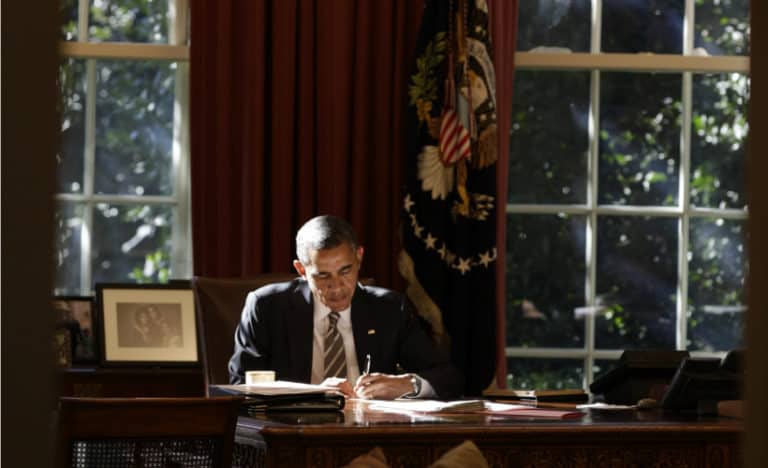Blog
Barack Obama finds himself back where he started his political career – navigating the bruising landscape of Chicago politics. And he will need some hope and change.
This time, instead of building consensus as a community organizer or seeking support for an Illinois state office, Obama finds himself embroiled in a struggle to establish his presidential legacy on home turf.
The Obama Presidential Center would be built on 19 acres of City of Chicago parkland in Jackson Park on the South Side along the shore of Lake Michigan. The $500 million project would include a museum, event space, athletic center, and other features.
Just don’t call it a presidential library.
“The campus will remove barriers and seamlessly connect the park to the lakefront, unifying it with other local South Side institutions,” according to the Obama Foundation.
The private foundation is spearheading the project, which departs from tradition in several ways. The 13 existing presidential libraries collect all the unclassified papers during a president’s term and preserve them for the historians of the future.
The National Archives and Records Administration then manages the libraries and archives for all the presidents back to Herbert Hoover.
Obama is breaking with precedent with a plan to digitize his memos, letters, social media activity, and other records, so they won’t be stored on site for researchers.
His privately funded center has run afoul with local open-space activists, who hae won a court ruling that could delay its planned 2021 opening.
On Feb. 19, the U.S. District Court for the Northern District of Illinois allowed a lawsuit from Protect Our Parts to proceed to determine whether the center violates the public trust doctrine, reports CityLab.
Plans for the presidential center have been in the works since May 2017, shortly after Obama left office. However, details were sparse until Feb. 19, when the National Archives released its agreement with the Obama Foundation about how the 44th president’s records would be digitized. More than 30 million pages will be scanned.
Several historians and presidential library officials have bemoaned Obama’s approach for depriving the public of a central repository.
Timothy Naftali, the former director of the Richard Nixon library, told the New York Times that the move “opens the door to a truly terrible Trump library.”
Public park debates aside, Obama’s privately run presidential library may break from recent tradition, but many popular and successful presidential sites are run by private organizations, including George Washington’s Mount Vernon, Thomas Jefferson’s Monticello, and Andrew Jackson’s The Hermitage.

